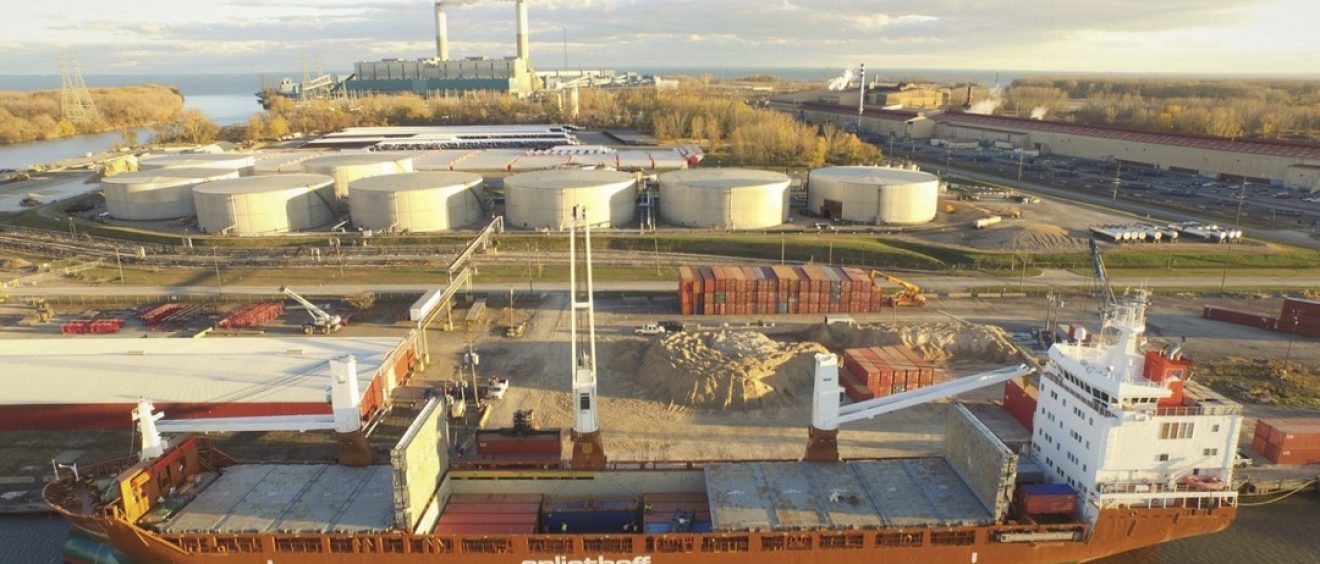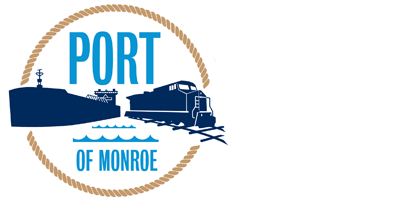
U.S. Sen. Gary Peters, D-Mich., and U.S. Rep. Tim Walberg, R-Tipton, have called on the Government Accountability Office to launch a study on cargo screening standards.
Source: The Monroe News
A bipartisan partnership representing Monroe County is continuing to make waves in an ongoing regulatory dispute between a local agency and the federal government.
U.S. Sen. Gary Peters, D-Mich., and U.S. Rep. Tim Walberg, R-Tipton, have called on the Government Accountability Office to launch a study on cargo screening standards that they contend to be inconsistent across the country.
“We have received reports that (U.S. Customs and Border Patrol) is not applying a consistent standard at ports of entry across the United States for screening requirements for non-containerized cargo, including for ports in Michigan,” Walberg and Peters wrote in their letter.
The duo submitted an official inquiry and call to action to Gene Dodaro, comptroller general of the U.S. The letter, in which they ask Dodaro and GAO to launch a review of their claim, was submitted to the agency Monday.
The GAO is a nonpartisan federal agency that acts as a fiscal “watchdog,” often rendering recommendations and delivering information to Congress on a wide scope of issues.
For several years Walberg and Peters have been working with the Port of Monroe to address policies levied by CBPs Detroit office on handling break bulk cargo, which is cargo packaged outside of shipping containers.
CBP Detroit has demanded Monroe invest an additional $5 million in security upgrades and that break bulk cargo moving through the port receive complete scanning and inspection from CBP. But CBP Detroit has said it cannot dedicate with regularity the manpower needed to do so, citing limited resources.
The policies have hampered the ability of the port to operate in the international cargo business, costing it and the region millions in revenue, according to a recent study.
Per federal regulations, containerized cargo is required to receive full scanning.
But CBP Detroit has extended that standard to break bulk cargo, and has quelled business agreements at the Monroe port.
It’s a stark contrast to other ports, such as the ports of Toledo and Cleveland, where standards are more lax and where additional time has been given to meet federal standards. The Ohio ports are under a different CBP jurisdiction, too — they are subject to CBP’s Chicago office.
The discrepancy in security standards form the backbone of the legislators’ complaint. In their inquiry, they ask GAO to determine whether shipping standards are being equally enforced at ports of entry across the country.
Walberg and Peters are also asking GAO to clarify what types of cargo are subject to complete scanning requirements as mandated by federal policy and also to determine if CBP has conducted risk analyses on handling break bulk cargo from international ports.
In their letter to Dodaro, they highlight the importance of the shipping industry and its economic impact on the region and the country. They also point to an unequal business environment forged by varying levels of cargo scrutiny.
“CBP’s inconsistent approach gives a strategic advantage to some ports while placing burdensome infrastructure requirements on other ports, such as demands from CBP to purchase expensive scanning equipment that is provided by the federal government at other points of entry,” Walberg and Peters wrote.
The official inquiry to Dodaro and his office is just the latest move made by Walberg and Peters, who have held a series of meetings with officials, many of which have been attended by Port Director Paul LaMarre III.
Peters brokered a meeting between port officials and high-ranking members of CBP last year. Walberg also brought the issue to the attention of President Donald Trump, who indicated its an issue he wanted to hear more about.
That led to a meeting earlier this month with Walberg, LaMarre and Peter Navarro, senior advisor to the president and director of Trade and Manufacturing Policy.
During the meeting, LaMarre was able to discuss the Port of Monroe’s dealing with CBP and the adverse impact its policies has had on the port.
LaMarre is heartened by the bipartisan work between Walberg and Peters. The issue of shipping has a wide impact on the entire state, he said.
“This is about honesty and equity,” LaMarre said. “It is about the men and women working on our docks and the crews of our vessels. It is about Michiganders’ strive for prosperity from the waterways that define us.”
Despite CBP’s restrictions, the Monroe port has been able to grow its international business, though it cannot handle non-crated or containerized cargo, according to LaMarre, who said 2019 was a record year for the port.
He anticipates that trend to continue into this year, despite its business being stymied by restrictions.
“We will not relent; we will continue to seek truth,” LaMarre said “Not just for the Port of Monroe, but for our community, all Michigan ports and the Great Lakes as a whole.”
LaMarre is hopeful GAO’s investigation will offer a clear, definitive answer.
“Why are Michigan Ports being treated differently than anywhere else in the United States?” LaMarre questioned. “They have evaded this question for months. It is time for the GAO to find out why.”
Hello reader, our article commenting that you would normally see here is temporarily shut down. We still want to hear from you, so we invite you to go to our Facebook page or submit a letter to the editor.



